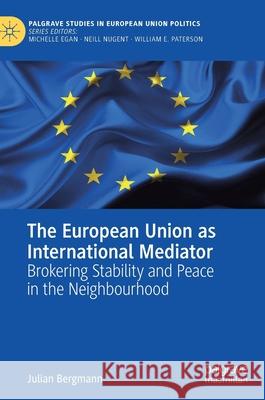The European Union as International Mediator: Brokering Stability and Peace in the Neighbourhood » książka
topmenu
The European Union as International Mediator: Brokering Stability and Peace in the Neighbourhood
ISBN-13: 9783030255633 / Angielski / Twarda / 2019 / 270 str.
The European Union as International Mediator: Brokering Stability and Peace in the Neighbourhood
ISBN-13: 9783030255633 / Angielski / Twarda / 2019 / 270 str.
cena 342,95
(netto: 326,62 VAT: 5%)
Najniższa cena z 30 dni: 327,68
(netto: 326,62 VAT: 5%)
Najniższa cena z 30 dni: 327,68
Termin realizacji zamówienia:
ok. 22 dni roboczych
Bez gwarancji dostawy przed świętami
ok. 22 dni roboczych
Bez gwarancji dostawy przed świętami
Darmowa dostawa!
Kategorie BISAC:
Wydawca:
Palgrave MacMillan
Seria wydawnicza:
Język:
Angielski
ISBN-13:
9783030255633
Rok wydania:
2019
Wydanie:
2020
Numer serii:
000510492
Ilość stron:
270
Waga:
0.49 kg
Wymiary:
21.01 x 14.81 x 1.75
Oprawa:
Twarda
Wolumenów:
01
Dodatkowe informacje:
Wydanie ilustrowane











